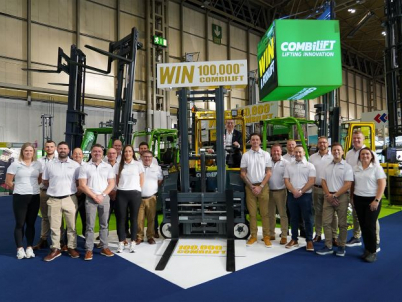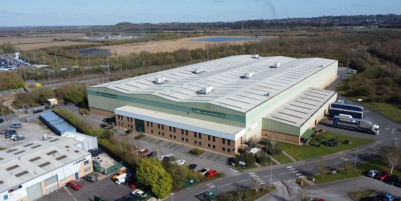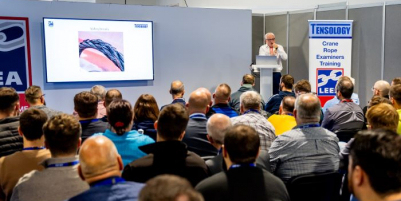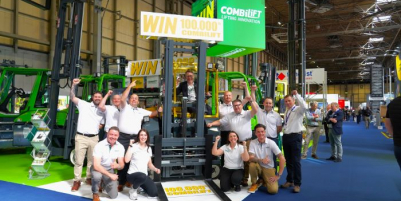-
GOPLASTICPALLETS.COM AND GOMI TEAM UP TO CREATEINNOVATIVE TECH FROM END-OF-LIFE PALLETS - 1 day ago
-
Nulogy Introduces the Manufacturing Operating System - February 27, 2026
-
Bliss Direct scales to 300 daily orders and saves 25 hours per week with Forterro’s Orderwise ERP - February 25, 2026
-
Wootzwork raises $6.6M to bring predictability to offshore manufacturing - February 25, 2026
-
Rite-Hite unveils new range of hydraulic kits to upgrade and extend dock leveller performance - February 19, 2026
-
REWE and Cimcorp automate fresh supply chain for Berlin supermarkets and stores - February 19, 2026
-
Q1 – A recovery period or time to fix, switch and scale? - February 19, 2026
-
NULOGY’S SHOP FLOOR SOFTWARE TO POWER COMPLETE CO-PACKING’SOPERATIONS - February 13, 2026
-
Why lead generation depends upon good content - February 13, 2026
-
Wallapop and Albatross Sign Strategic Partnership to Bring Real-Time AI Discovery to the Future of Consumer-to-Consumer Commerce - February 12, 2026
Pay tribunal ruling will drive even greater uptake of automated handling technology, say Rainbow Dynamics
According to UK-based robotic and automated materials handling solutions specialist Rainbow Dynamics, the economic case for automating the key processes within a typical warehouse or fulfilment centre has been made even more compelling following the recent ruling that high street retailer Next must pay its shop assistants the same rate as its warehouse workers.
More than 3,500 current and former Next employees had claimed that store staff, who are predominantly women, should not be paid at a lower rate than warehouse workers – over half of whom are men. The Next staff contended that better-paid warehouse jobs are more likely to be filled by men due to the physical demands of the work. This, they argued, puts women at a disadvantage.
In its defence Next said that the different rates of pay between its warehouse and retail staff were justified because warehouse personnel command higher salaries than shop workers across the labour market.
But the retailer’s argument was rejected by a pay tribunal – a decision that it is reported is likely to cost the company in the region of £30 million in back pay.
Frazer Watson, Vice President of Rainbow Dynamics, believes that the ruling is likely to add to the already significant recruitment issues that the supply chain sector has been wrestling with for some time.
Frazer Watson says: “One of the ways that logistics companies and own account warehouse operators have tried to tackle the labour crisis that has existed since Brexit has been to offer increasingly attractive rates of pay in order to draw in the workers needed to run their facilities.”
He continues: “But this ruling means that if a retailer or its logistics services partner decides to seek extra warehouse staff by raising pay, the retailer must also offer its shop assistants the same deal. So, not only is the retailer’s wage bill increased but if it is possible to earn the same amount by working in the relative comfort of a high street shop as it is in a warehouse which, as everyone knows can be cold, dark and sometimes dangerous places, the already tough task of recruiting warehouse personnel will be even more difficult.
“In my opinion, this verdict can only accelerate the trend we are seeing across the logistics sector for companies to introduce automated and robotic solutions as a way of mitigating the problems associated with recruiting suitable personnel and the high cost of labour.”
Workers at five of the UK’s largest supermarkets, Asda, Tesco, Morrisons, Sainsbury’s and the Co-op, are reported to be pursuing similar equal pay cases.
With its head office in Lancashire, Rainbow Dynamics designs and builds a suite of sustainable robotic load handing and automated parcel sortation solutions for logistics warehouses, post and parcel handling facilities, manufacturing sites and e-commerce fulfilment centers.

































